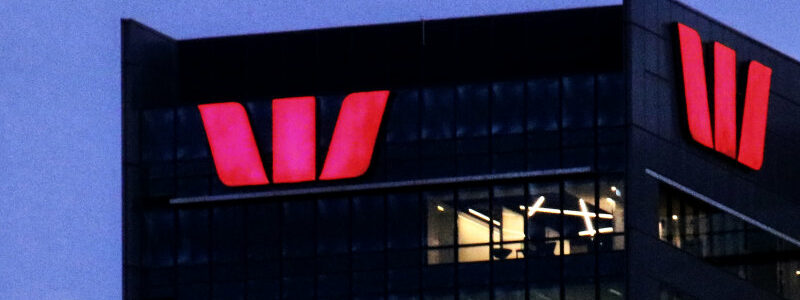
Westpac keeps Pacific banks as it eyes COVID-19 rebound
Save articles for later
Add articles to your saved list and come back to them any time.
Westpac has walked away from a plan to sell its operations in Fiji and Papua New Guinea as it eyes the region’s growth potential, amid government support for an Australian-owned bank remaining in the Pacific.
Westpac had sought to divest its Pacific businesses to Kina Securities for up to $420 million in late 2020, as part of its plan to focus more closely on retail, business and institutional banking in Australia and New Zealand. However, competition concerns scuttled that deal in 2021, and Westpac has since spoken to other potential buyers.
Westpac will retain its banking interests in Fiji and Papua New Guinea.Credit: Will Willitts
On Wednesday, it drew a line under the sale process and said it would keep the two businesses: Westpac Fiji and a stake of almost 90 per cent in Westpac Bank PNG.
Fiji’s economy has experienced rapid growth as overseas tourism has resumed, and the chief executive of Westpac’s business and wealth division, Anthony Miller, said the bank saw an opportunity in the region.
“Westpac has a great role to play in this very important region with our ability to be a strong, stable and trusted financial partner in the Pacific,” Miller said.
A Westpac source not authorised to speak publicly said the federal government also supported an Australian bank maintaining a significant presence in PNG and Fiji.
China has been playing a bigger role in the Pacific, and there were reports in 2020 that Westpac’s plan to sell the businesses had sparked concerns in Canberra that such a move could work against government efforts to deepen ties in the region.
Federal Treasurer Jim Chalmers said in a statement: “We welcome Westpac’s continued presence in Fiji and Papua New Guinea to promote competition and better banking services in the Pacific. These services are critical to international trade, investment and remittance flows, and are important for economic growth.”
Miller said the bank planned to support businesses in Fiji and PNG, improve digital banking services and deliver programs in financial literacy and education.
“With the Pacific continuing to see growth, diversification and recovery post-COVID-19, there is additional opportunity for us, and I am excited at what is ahead, as we not only consolidate but improve our position in the local markets,” he said.
Westpac’s decision to retain its Pacific businesses comes as the lending giant has been expanding its Australian mortgage portfolio faster than some domestic rivals amid stiff competition in home lending.
UBS analysis of Australian Prudential Regulation Authority figures this week showed Westpac expanded its mortgage portfolio by 0.6 per cent in August, in contrast with a 0.3 per cent contraction in the mortgage book of Commonwealth Bank. Westpac also posted solid monthly growth of 1.3 per cent in its household deposit book.
The faster growth in Westpac’s domestic portfolio comes as it is seeking to turn around previous market share losses, whereas CBA chief executive Matt Comyn said earlier this year that home loans were being written at below the cost of capital, suggesting the bank may pull back.
Even so, analysts said contraction in CBA’s vast home loan portfolio raised questions.
Morgan Stanley analyst Richard Wiles said the contractions in July and August were the first two consecutive months of CBA’s mortgage book shrinking in 20 years. Wiles said the trend probably reflected CBA’s move to scrap mortgage cashbacks earlier in the year, and moves to pare back interest rate discounts.
“We believe its management team will need to decide whether to accept below system growth or be more aggressive on price in the months ahead,” Wiles said.
The Business Briefing newsletter delivers major stories, exclusive coverage and expert opinion. Sign up to get it every weekday morning.
Most Viewed in Business
From our partners
Source: Read Full Article
